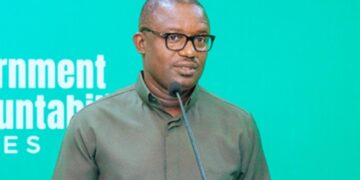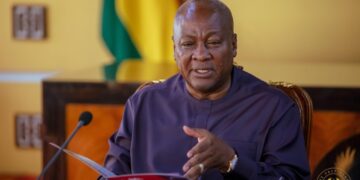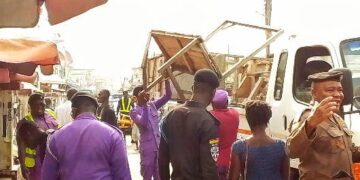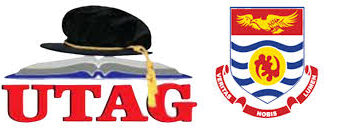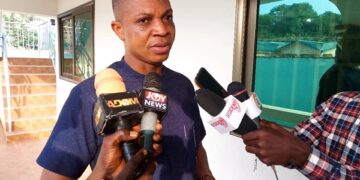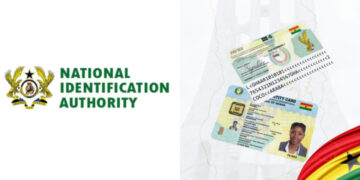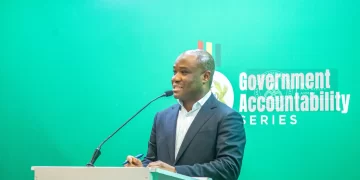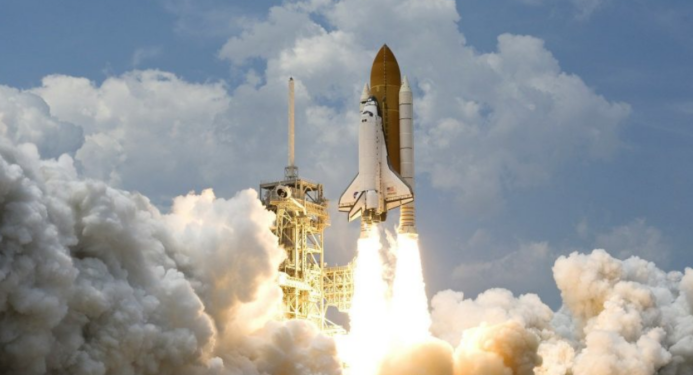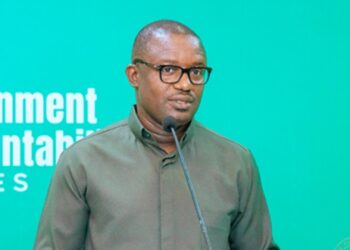Ghana’s Space Science and Technology Institute has revealed that the country intends to send a rocket into space soon.
However, the institute warns that achieving this long-term goal will need collaboration with other International Astronomical Union (IAU) member nations.
The 2024 IAU General Assembly, hosted in Cape Town, South Africa, will be the first time this important event has been held on the African continent in the Union’s 105-year existence. This is a key milestone for both the IAU and South Africa.
The IAU General Assembly is the world’s biggest forum for astronomers, scientists, and researchers to discuss advances in astronomical science and promote worldwide collaboration.
The event will bring together nearly 2,000 specialists from 82 nations, emphasizing Cape Town’s growth as a vital hub for scientific discourse and innovation.
Dr. Naomi Asabre Frimpong, a Research Scientist at the Ghana Space Science and Technology Institute, told JoyNews’ Blessed Sogah on the sidelines of the ceremony that “Ghana does plan to go to space.”
“However, we will need a lot of investment in space technology, in space engineering communication and research because our infrastructure right now does not support going to space as far as the international space station.”
Responding to worries that Ghana and other African nations lacked modern satellite technology, Dr Naomi stated, “Ghanaians are really brilliant; we have a lot of potential, and we can do a lot with the little infrastructure we have.”
“So with support from the government with support from the public and our own research and universities Ghanaians can contribute to the International Scientific Community and so I don’t think we should look down on our scientists we can do more with more support.”
Responding to fears that Ghana and other African countries may lack modern satellite technology, Dr. Naomi Asabre Frimpong voiced confidence in Ghana’s capabilities.
Read Also: NLA loses GH¢1 billion to illegal lottery operations
She stated, “Ghanaians are really brilliant; we have a lot of potential and are able to achieve a lot with the limited infrastructure we have. With support from the government, the public, and our own research institutions and universities, Ghanaians can contribute significantly to the international scientific community. Therefore, we should not underestimate our scientists. We can achieve more with additional support.”
South Africa, which is hosting the 2024 IAU General Assembly, has stated a readiness to collaborate with nations such as Ghana to strengthen their contributions to the global astronomy community.
Thoko Modise, General Manager for Communications at Brand South Africa, South Africa’s national marketing agency, expressed her delight for the relationship.
“We are thrilled to collaborate with the International Astronomical Union for the 2024 General Assembly.”
“Hosting this prestigious event in Cape Town not only highlights South Africa’s role as a significant player in the global astronomy community but also reflects our commitment to supporting international collaboration and innovation. This assembly underscores our country’s growing prominence in the field and our capability to host world-class events.”
The 2024 IAU General Assembly provides an excellent chance for South African scientists to demonstrate advances in astronomy, notably via their participation in the Square Kilometre Array (SKA) project.
This massive worldwide initiative seeks to construct the world’s largest and most sensitive radio telescope, with components located in South Africa’s Karoo desert and Western Australia’s Murchison area.
With its extraordinary sensitivity and scale, the SKA project has the potential to transform our knowledge of the cosmos. Recent advancements include the successful construction of the first phase of dishes as well as the deployment of modern equipment, both of which promise revolutionary discoveries in radio astronomy and deeper research of cosmic events.
The assembly will include lectures on the James Webb Space Telescope’s influence on our understanding of the cosmos, novel methods for detecting exoplanets, attempts to prevent light pollution, and the role of astronomy in global development.
Notable visitors include Dr. Sian Proctor, who became the first African American woman to pilot a spacecraft on the all-civilian Inspiration4 mission.
In addition, Dr. Brian Schmidt, recipient of the 2011 Nobel Prize in Physics for his work on the rapid expansion of the universe, will be interviewed during a live broadcast of the “Cosmic Savannah” podcast at the CTICC on August 14 from 7:30 to 9:30 pm.
On August 9, 10 Cape Town students and NASA astronaut Sunitha Williams will participate in a live radio link with the International Space Station. Mae Jemison, former NASA astronaut and the first African American woman in space, will also be present.

